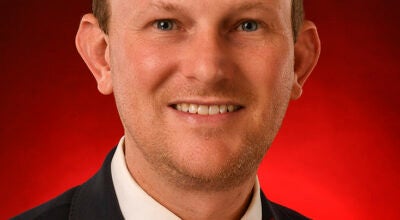What Obama doesn’t want you to know
Published 11:00 pm Friday, July 26, 2013
A major section of Obamacare that requires employers to provide health insurance for their employees or pay a fine has been postponed until 2015, resulting in much confusion and controversy around the nation. But little attention has been paid to the president’s most threatening weapon for cutting health care costs: the Independent Payment Advisory Board. It still remains, causing the administration fury when it’s called a “death panel.”
As David B. Rivkin Jr., an alumnus of the Justice Department under Presidents Ronald Reagan and George H.W. Bush, and Elizabeth Foley, a professor of constitutional law at Florida International University, document in The Wall Street Journal: The cost-cutting IPAB “threatens both the Medicare program and the Constitution’s separation of powers” (“An ObamaCare Board Answerable to No One, Rivkin and Foley, The Wall Street Journal, June 20).
Under the ever-imperious Barack Obama, of course, these constitutional somersaults are not unusual.
The IPAB is, according to the authors, “directed to ‘develop detailed and specific proposals related to the Medicare program,’ including proposals cutting Medicare spending below a statutorily prescribed level.”
For instance, as I’ve pointed out, whatever Medicare-paid prescriptions your physician has authorized for your benefit can be vetoed by the IPAB (whose members have never examined you) if they cost too much.
Meanwhile, this 15-member board, which can remove you from the universe, “will control more than a half-trillion dollars of federal spending annually.”
Rivkin and Foley continue: “Once the board acts, its decisions can be overruled only by Congress, and only through unprecedented and constitutionally dubious legislative procedures — featuring restricted debate, short deadlines for actions by congressional committees … and super-majoritarian voting requirements.”
In this United States of Obama, “The law allows Congress to kill the otherwise inextirpable board only by a three-fifths supermajority, and only by a vote that takes place in 2017 between Jan. 1 and Aug. 15.”
If this board “fails to implement cuts, all of its powers are to be exercised by (Health and Human Services Secretary Kathleen) Sebelius or her successor.”
I don’t remember voting for her or him.
Rivkin and Foley say with fearful logic: “At a time when many Americans have been unsettled by abuses at the Internal Revenue Service and Justice Department, the introduction of a powerful and largely unaccountable board into health care merits special scrutiny.”
It sure does. What will members of Congress do about this next outrage by Obama? What will the 2016 presidential candidates say about it?
There’s more that needs special scrutiny. When I first heard of what follows — “Another ObamaCare Tax That Is Bad for Your Health” (Fred Burbank and Thomas J. Fogarty, The Wall Street Journal, July 8) — I was very disturbed. This cold-hearted Obama reduction of our health care possibilities took me back almost 20 years. I was 69 at the time, and my physician told me, “Your life is hanging by a thread. I must prepare you for open-heart bypass surgery.”
As described at about.com, during this procedure, the chest is opened with an incision that allows the surgeon access to the heart, which is temporarily stopped with a solution of potassium (“What Happens During Open Heart Surgery,” about.com).
“At this time,” the article continues, “the heart-lung machine does the work of the heart and the lungs.”
While I was getting ready for this very daunting surgery, my doctor and others told me how lucky I was because this particular open-heart procedure had only become possible some years before with newly researched techniques.
But now, under Obama, as physicians Burbank and Fogarty report in their op-ed for The Wall Street Journal: “On Jan. 1, manufacturers of medical devices in the U.S. were hit with a new 2.3 percent tax on revenue, one of the many sources of money tapped to pay for Obamacare …
“Its effect on U.S. medical-device startups — the small companies that fuel innovation — may prove devastating.”
Why? Burbank and Fogarty answer: “Coincident with the 2.3 percent tax, venture capital investment in medical devices has all but ceased … Ask yourself two questions: Who would want to invest in a highly regulated, government-controlled industry that faces a unique tax? What startup medical device company can reach the magical break-even point with a (special) tax on its revenue?
“When combined with the ever-increasing time it takes to get approval from the U.S. Patent and Trademark Office and the Food and Drug Administration, this levy is bound to destroy startups and stunt medical-device innovation in the U.S. and thus the quality of health care worldwide.”
The focus for many opponents of Obamacare is that it could potentially short-circuit the lives of the elderly. But what medical device inventors have created is not limited to the aged.
However, much of Obamacare can shorten the lives of what used to be called “the old old” among us, and it is vital for many voters in the coming elections to be aware of this if Obamacare’s influence continues beyond its namesake’s possession of the Oval Office.
Consider this projection from the Administration on Aging, cited in Our Sunday Visitor: “In 2030, the country will have 72.1 million people older than 65 — more than double what the elderly population was in 2000” (“Aging’s effects on the Church,” Brian Fraga, Our Sunday Visitor, April 17).
After the first few months of Obama’s initial term, I wrote that he was becoming the most dangerous and destructive president in our history. A grim illustration of his impact is Obamacare’s evisceration of the separation of powers when it comes to the possible length of our lives.
Could James Madison and Thomas Jefferson even have imagined something like the Independent Payment Advisory Board?
(Nat Hentoff is a nationally renowned authority on the First Amendment and the Bill of Rights. He is a member of the Reporters Committee for Freedom of the Press, and the Cato Institute, where he is a senior fellow.)


